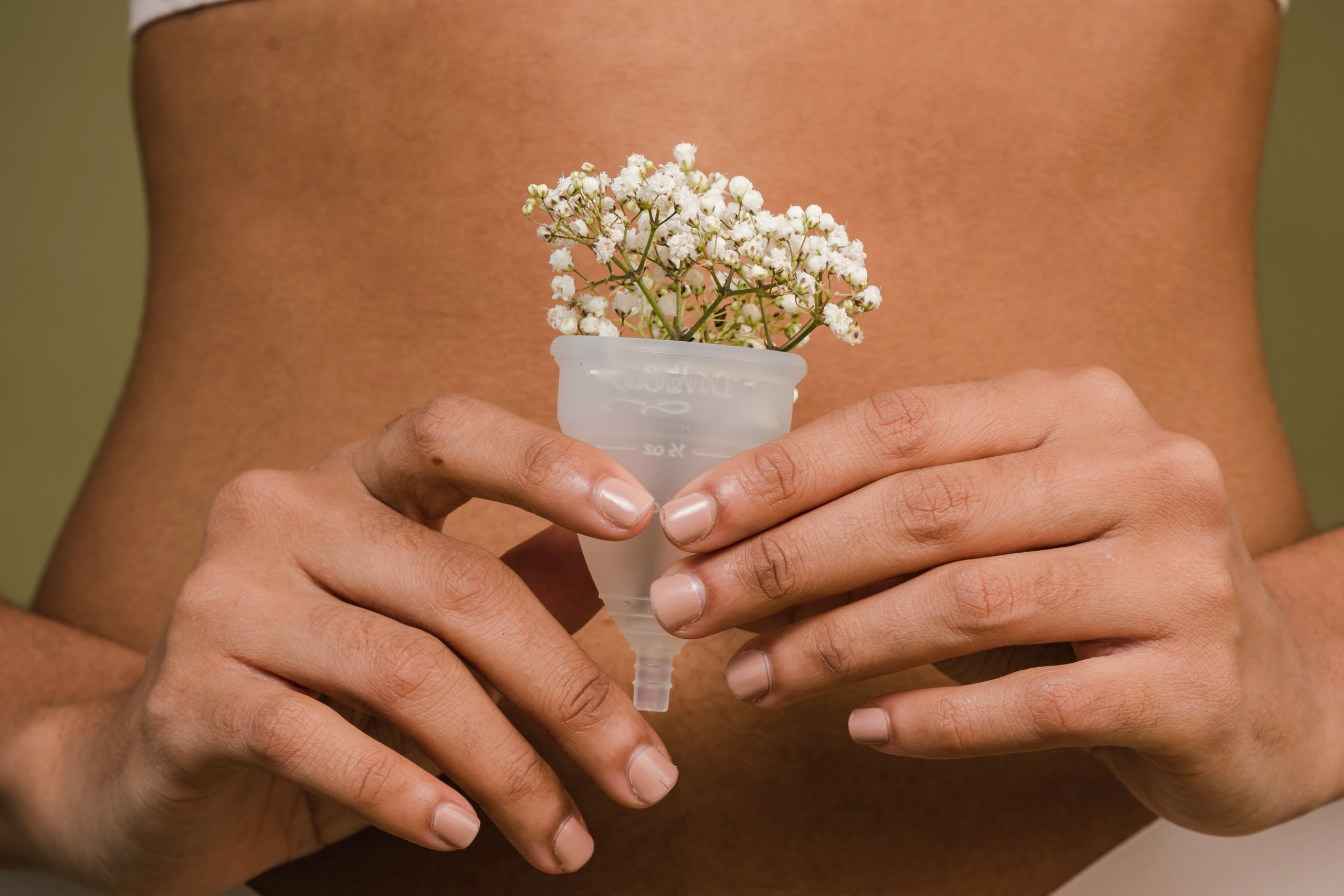Top Image: Sora Shimazaki / Pexels
“Maxine, are you sure you want to drink that?” my friend prods. We’re standing in a Kopitiam near my house, grabbing some drinks in a valiant attempt to rescue ourselves from the sweltering sun. “‘Cause… you know, it’s that time of the month.” she lowers her voice into a whisper.
Fifteen minutes later, I finish the last sip, enjoying the ephemeral respite. Suddenly, I feel a slight pinch in my abdomen. The cold drinks have triggered my period cramps, and all that’s left for me to feel is regret.
When it comes to menstruation, there are some unspoken rules amongst the girls, chief of which is to stay the hell away from cold drinks. Other period no-nos include not wearing white bottoms and no consumption of spicy foods. As horrible as periods can be, sticking by these guidelines can, in some ways, help us tide through that time of the month a little better.
Beyond these “period rituals” we follow from our “womanhood bible” are actual rituals that stem from our own cultures and religions. Both faith-based ceremonies and restrictions on menstruating women can be found in just about every major faith in Singapore.
While the perception of periods differs across cultural landscapes—deemed empowering in some—but in others, unfortunately, come burdened with just a pinch of stigma.
Ritusuddhi in Hinduism
“When a girl comes of age, they will have a ceremony. I couldn’t leave the house for seven days during mine,” recalled 19-year-old student Sumaryan. “And every morning, I had to wake up early and eat a raw egg.”
During the coming-of-age ceremony, Sumaryan drank a teaspoon of castor oil and then bathed in water. To the water, some turmeric and a variety of flowers are added.
“They also put castor oil on your hair and forehead,” she shared. Saris are to be worn, with family and friends coming over, gifts in hand.
South Indians refer to this ceremony as Ritusuddhi or Ritu Kala Samskara, but it is known by many other names, each differing based on locale and ancestral tradition. Ritusuddhi is meant to mark a girl’s transition into womanhood; a sign brought about by a daughter’s menarche.
Back in India, these ceremonies were a means to announce that a girl was eligible for marriage, given that her body could now bear children. Some families may also use these ceremonies as an elaborate display of wealth and to network, renting out grandiose locations and showering girls with unending amounts of gold jewellery.
But despite the first period being commemorated, the Indian Hindu view on menstruation is paradoxical.
A fertile woman is held in reverence, for she symbolises an opportunity to continue a family’s lineage. At the same time, that same woman is forbidden from setting foot in temples or holy grounds. Menstruating individuals straddle the ironic line between being revered as sacred and systemically shut out.
Buddhism, TCM, and the passive Yin
In Buddhism and Traditional Chinese Medicine (TCM), women are thought to lose Qi while menstruating. Qi is energy, believed to be part of everything that exists, both material and immaterial. Qi also goes hand in hand with the complementary forces of Yin and Yang.
TCM’s ancient beliefs of balancing energies in one’s body naturally extend into how menstruation is viewed. Menstruation, known as “the monthly water,” is how women’s bodies cleanse themselves from unhealthy imbalance.
As periods are considered a sign of imbalance, they were regarded as a private matter that women were expected to deal with discretely by achieving a better balance in their bodies.
Yin is the passive, feminine counterpart to the active, masculine Yang. What’s worth noting is that the two forces complement each other but not always in similar ways. This belief, in turn, has underpinned Chinese social norms under Confucianism—Yin Yang perhaps dictates that men should lead and women should follow. And so, menstruation was viewed as a form of ailment, part of the inferior natural experience of women.
TCM also tells us that blood that gives life from a pregnant mother and her unborn child was understood to be positive and innately feminine. On the other hand, blood that flows from the body, such as menstrual blood, is still feminine but considered impure and should be kept private.
As menstruation occurs in both an unclean and feminine dichotomy, the female body is considered “a symbol of filth” during menstruation. Thus, any talk or discussion about periods is kept hush-hush.
Ritual impurity
“When women are on their periods, they are not allowed to pray,” Syaza, a 20-year-old Muslim, explained. “You can say it’s impure because the blood is considered ‘dirty’ in a way that will not make the prayer permissible.”
The idea of purity is an imperative doctrine in Islam and sets the foundation for many of the faith’s practices. Cleanliness and purity are both forms of preparation and a prerequisite for worship—in order to pray, a Muslim has to be in a state of ritual purity.
When women menstruate, they enter a state of ritual impurity, which can only be reversed by pouring water over the entire body according to ablution rituals, also known as ghusl.
Once the ritual bath is completed, Muslims can resume their spiritual obligations like solat (the five daily obligatory prayers), fasting, or other sexual activity. During Ramadhan, women on their period are exempt from fasting.
“We’re taught that God wants to give women a break, knowing that the rest of the world would not—because He knows of the pain,” shared 20-year-old Irsalina.
However, Muslim women are not exempt from scrutiny. In 2018, women worldwide took to social media to call out the period shaming they experienced during the Holy Month. Some claimed they found it difficult to open up about their periods to their brothers and fathers despite being exempt from fasting, often coming up with other reasons for abstaining from the fast for seven days.
And although the religion encourages mercy and gentleness for women during their period, this has evolved culturally into menstruation being treated with silence and shrouded in secrecy.
“I think it’s normal to [feel like you need to hide] because you’ll definitely feel left out,” Syaza laughed. “You’re the minority who’s not fasting, and even non-Muslims, when they see us Muslims, they [would usually] know it’s Ramadhan and expect that we’ll fast. But if they see us eating, then that might not look good, la in a way.”
Why is it so hard to just talk about it?
Similar to my experience at the Kopitiam, society often speaks in euphemisms when referring to periods.
‘Aunt Flo’, ‘that time of the month’, ‘bloody mary’ or even “大姨妈” (dà yí mā, great aunt in Mandarin) are all terms we use to describe our periods. It’s as if the utterance of the phrase might conjure the spitting image of a monster that goes around the village of lore feasting on blood from virgin necks.
I remember feeling the dire need to be discreet about it-which-must-not-be-named. My time as a youth may be a blur, but I remember distinctly stuffing bulky pads in my skirt pocket when I wanted to change in secondary school, conjuring laughable reasons as to why I had to skip school swimming lessons and having to grit my teeth through my period cramps as I didn’t know how I could explain my discomfort to the men around me.
“I used to be ashamed or embarrassed when I was younger because I guess I thought it was taboo and boys shouldn’t know about periods,” shared Irsalina.
And although you might not see women shunned from society and forced to be isolated during their periods—how does one build menstrual huts in an HDB estate?—it’s pretty evident from our daily conversations and casual interactions that the stigma around menstruation, and the general gap of knowledge surrounding periods, still exists today even in a highly developed country such as Singapore.
According to Ruth Ong, co-founder of Shy, a sexual health literacy platform, “Certain religions stipulate that menstruating people are not allowed to enter places of worship. This ingrains and reinforces the notion of people menstruating or menstrual blood being dirty.”
Experts, backed by the credibility of multiple studies, have even put forth that the silence around periods has a negative impact on girls.
Young girls, in turn, feel embarrassed to talk about their periods and may even suffer health implications as a consequence. It becomes more concerning when complications during menstruation require medical attention but are instead kept on the back burner due to embarrassment.
The price we have to pay
Coupled with the cultural attitude that egregiously shames women for a natural process, period poverty is one of the most significant barriers women globally face. Period poverty is defined as a lack of access to menstrual products, education, hygiene facilities, waste management, or a combination of these.
It affects an estimated 500 million people worldwide, usually affecting lower-income families who may face an added burden to their finances when budgeting for things outside of food or accommodation.
Some women have spearheaded local initiatives such as Go With The Flow (GWTF) and Freedom Cups to address the issue. GWTF operates as a non-profit organisation that aims to bridge access for such families through sanitary pad donation and distribution. At the same time, Freedom Cups is a social enterprise that distributes menstrual cups to women in underprivileged communities.
Singaporean Evonne Chng, the co-founder of GWTF, shared, “We came to realise that menstrual healthcare for Singapore’s disadvantaged communities continues to be an aspect that is overlooked as it’s not provided for and not deemed as an essential. The cost of menstrual necessities, albeit small, adds on to their financial burden.”
Around Singapore, donation boxes set up by GWTF allow for the general public to donate sanitary pads. Evonne shared that the donated items are then made into care packages, and with the help of volunteers, are distributed to low-income households and social service organisations.
Beyond their distribution initiatives, “Go With The Flow also hopes to end period shame through open conversations and advocacy. It is one of the ways to dismantle the stigma [attached to it],” said Evonne.
Shedding the shame
How can ordinary people like us even begin to dismantle this stigma? First and foremost, society can start treating menstruation as what it is—a perfectly healthy biological function and a testament to the capabilities of a woman’s body.
This means that future generations will have some ways to erase the negative connotations that have latched themselves onto periods.
“This begins by empowering youths with knowledge about menstrual health. As most norms are perpetuated via culture and traditional beliefs, more must be done to educate based on facts,” shared Ruth.
Beyond the sexual education in our school system, sexual health literacy platforms exist, such as Shy. Shy hopes to be a place for anyone and everyone to start talking about sexual health and wellness and seek advice when needed to make better-informed decisions together.
“We see how females tend to hide their pads or tampons when they need a change and often avoid bringing [the topic of periods] up in the presence of male family members and friends,” Ruth adds. “But what for? Periods are a natural part of any menstruating female’s body!”
But despite the secrecy with which we regard periods, society’s approach to them is changing.
“We have been talking to women in Singapore for about six years now about their bodies and periods. While there still exists a stigma, a silence or sense of secrecy around it, the nature of the conversation and attitudes are changing for the better,” Vanessa Paranjothy, co-founder of Freedom Cups, shared with me.
“When we first started Freedom Cups, we were dealing with customers who knew little to nothing about their amazing bodies,” Vanessa explained. “At present, the questions we receive and the conversations we have are a little more nuanced, which illustrate to us that women have more agency around things like their health, wellbeing and bodies.”
And if there was one thing I took away from my conversations with Vanessa, Evonne and Ruth: Periods are absolutely not shameful. They are entirely normal and, in fact, healthy.
Vanessa shares, “Menstruating symbolises the powerful ability to procreate, and with it comes an immense beauty in being able to craft life out of our own bodies. reserved wholly for us. Through these lenses, it is hard to think about periods without a sense of pride and awe.”
Will cultural shame continue to dictate how women view their bodies? She thinks otherwise. “Menstruation is a profoundly personal and emotional experience. Everyone should be able to go through it subscribing to the beliefs, products, and practices that serve them best.”
“Cultural norms are not static and are constantly evolving with the times. If an idea does not serve 50% of the population, it’s hard to imagine that it will be replicated and transmitted indefinitely.” And that gives me hope.







